Videos and Recorded Presentations
Aging Initiative Webinar
Aging Initiative Webinar
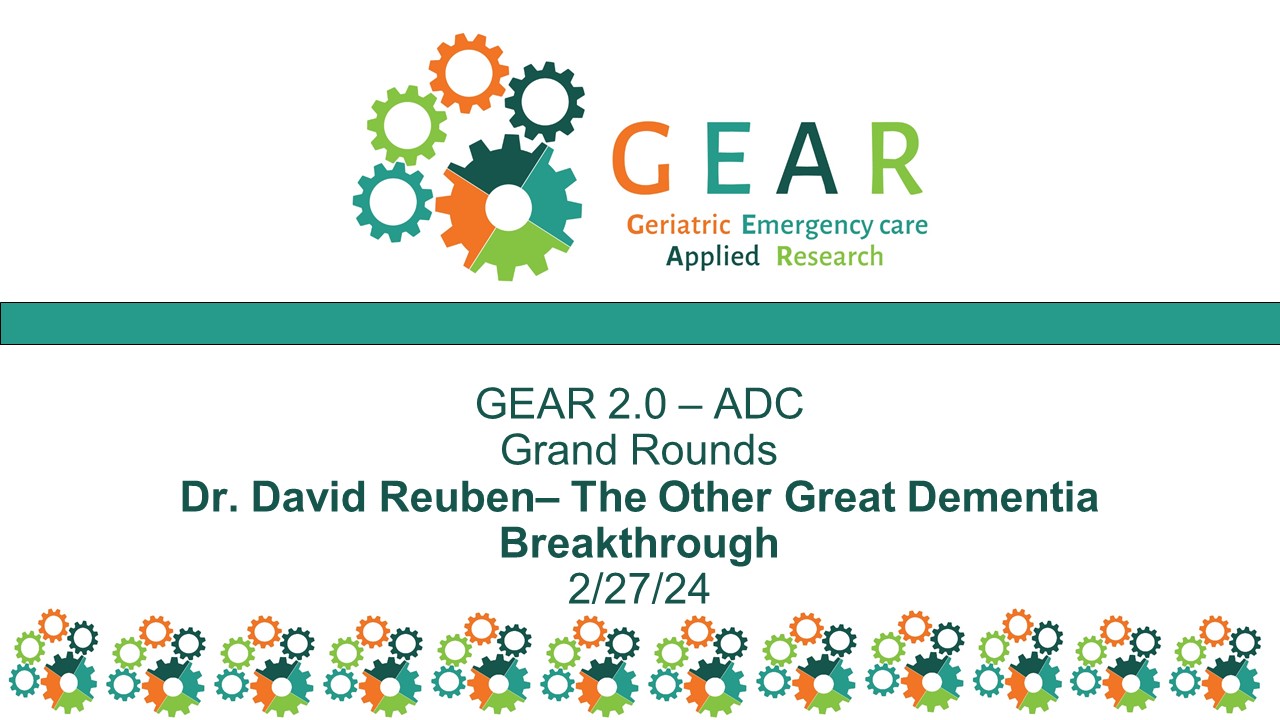
57:03
Grand Rounds
Grand Rounds Playlist

57:03
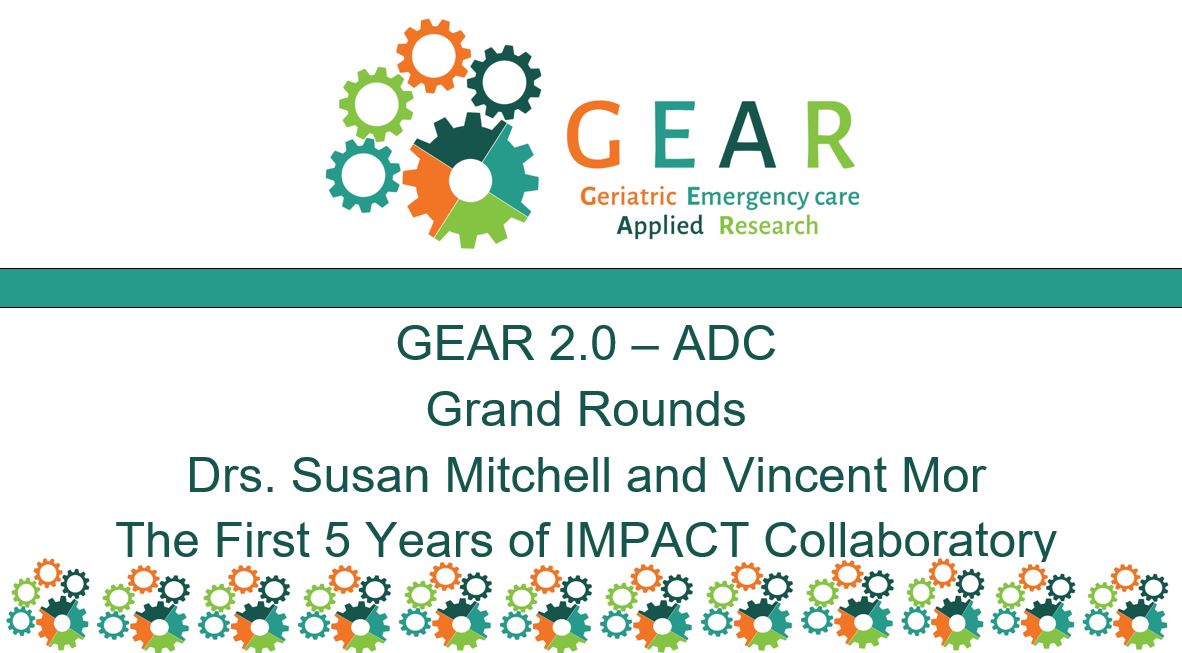
Recruitment, Engagement, & Retention Core Trainings
RER Core playlist
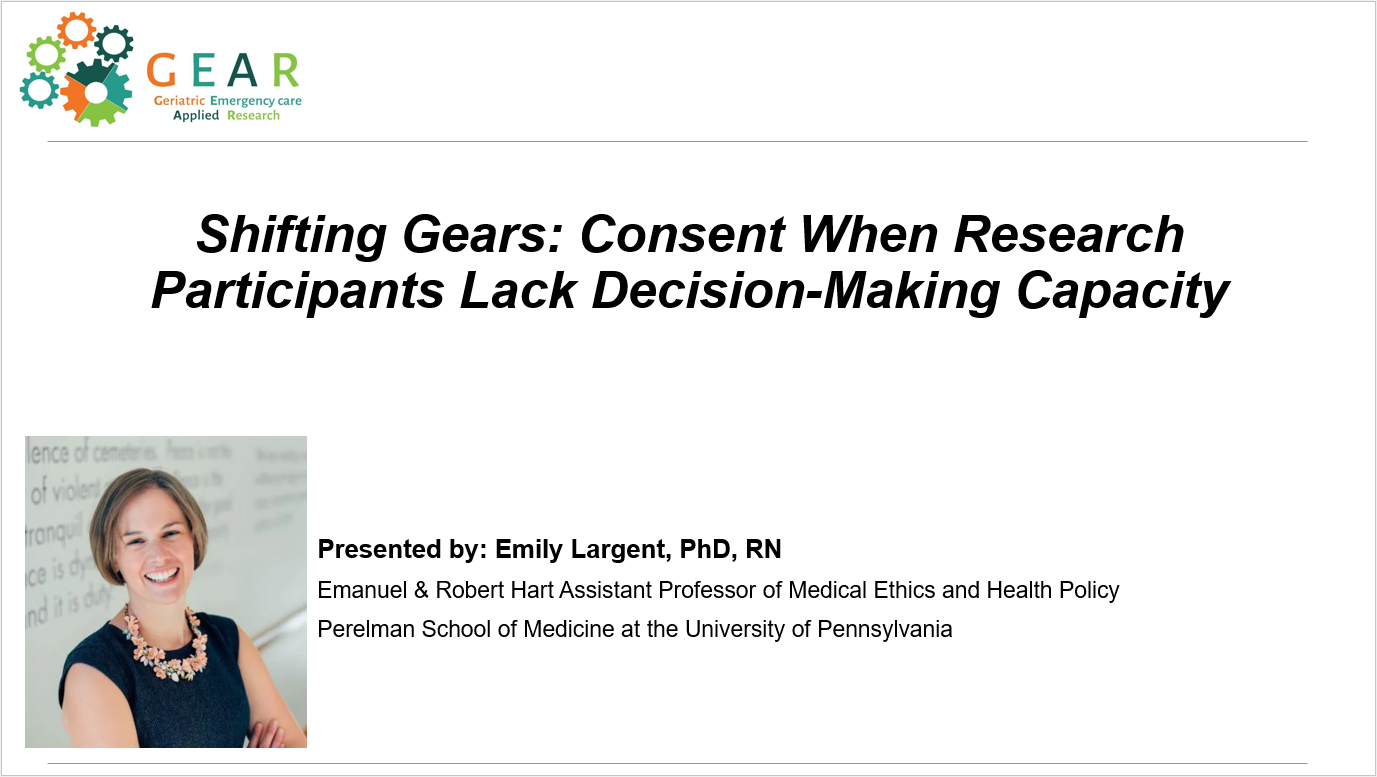
53.47
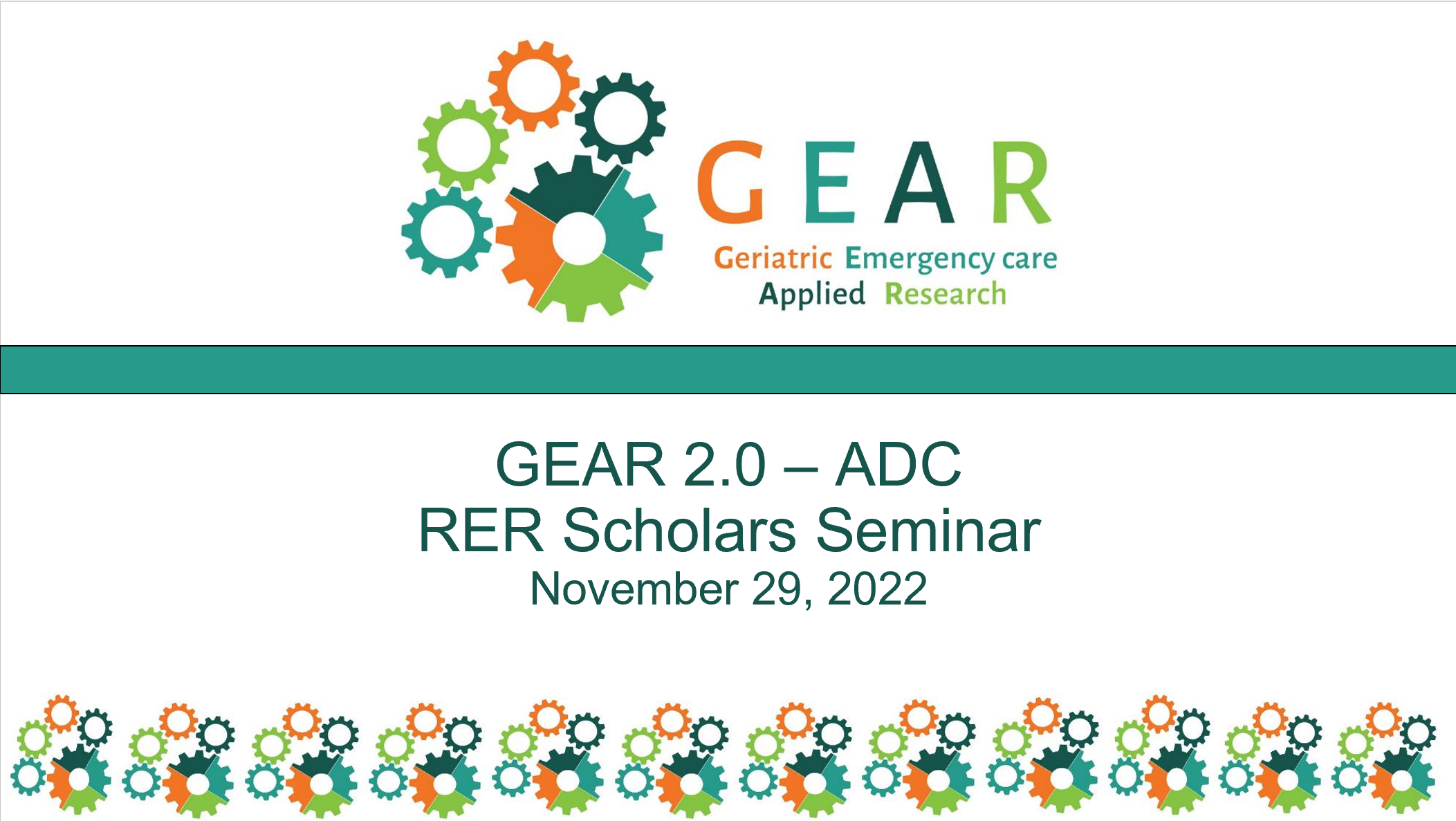
59:16

30:49

59:14
Presented by Dr. Emily Largent, a national leader in bioethics and clinical research, this presentation provides an overview on participant consent, defining capacity and how to assess capacity, goals and components of informed consents for research, how informed consent changes when participants lack capacity, and additional considerations for research with older adults.
About Dr. Emily Largent: Emily Largent, PhD, RN, is the Emanuel & Robert Hart Assistant Professor of Medical Ethics and Health Policy at the University of Pennsylvania. Her work focuses on ethical and regulatory aspects of human subject’s research, as well as the social, legal, and ethical considerations that arise when research findings are translated into clinical care. Emily is the 2023 recipient of the Baruch A. Brody Award & Lecture in Bioethics, and her work has been published in numerous leading bioethics and biomedical journals.
This session covers the two readings (Gilmore-Bykovskyi et al., 2021; Fritz et al., 2021), the RER checklist, and a general looking ahead for pilot grantees. Main takeaways include: (1) By focusing on individual-level factors of participation, a unidirectional moral obligation on participants is imposed and requires the participant to align their goals with that of researchers; (2) Acute care recruitment approaches must consider situation, recruiter skillset, periods of uncertainty, and preferred timing; and (3) it is important to appraise aspects of your research protocol for elements that can either help or harm participation (e.g., eligibility criteria, level of participant involvement).
Research Core Trainings
Research Core Playlist
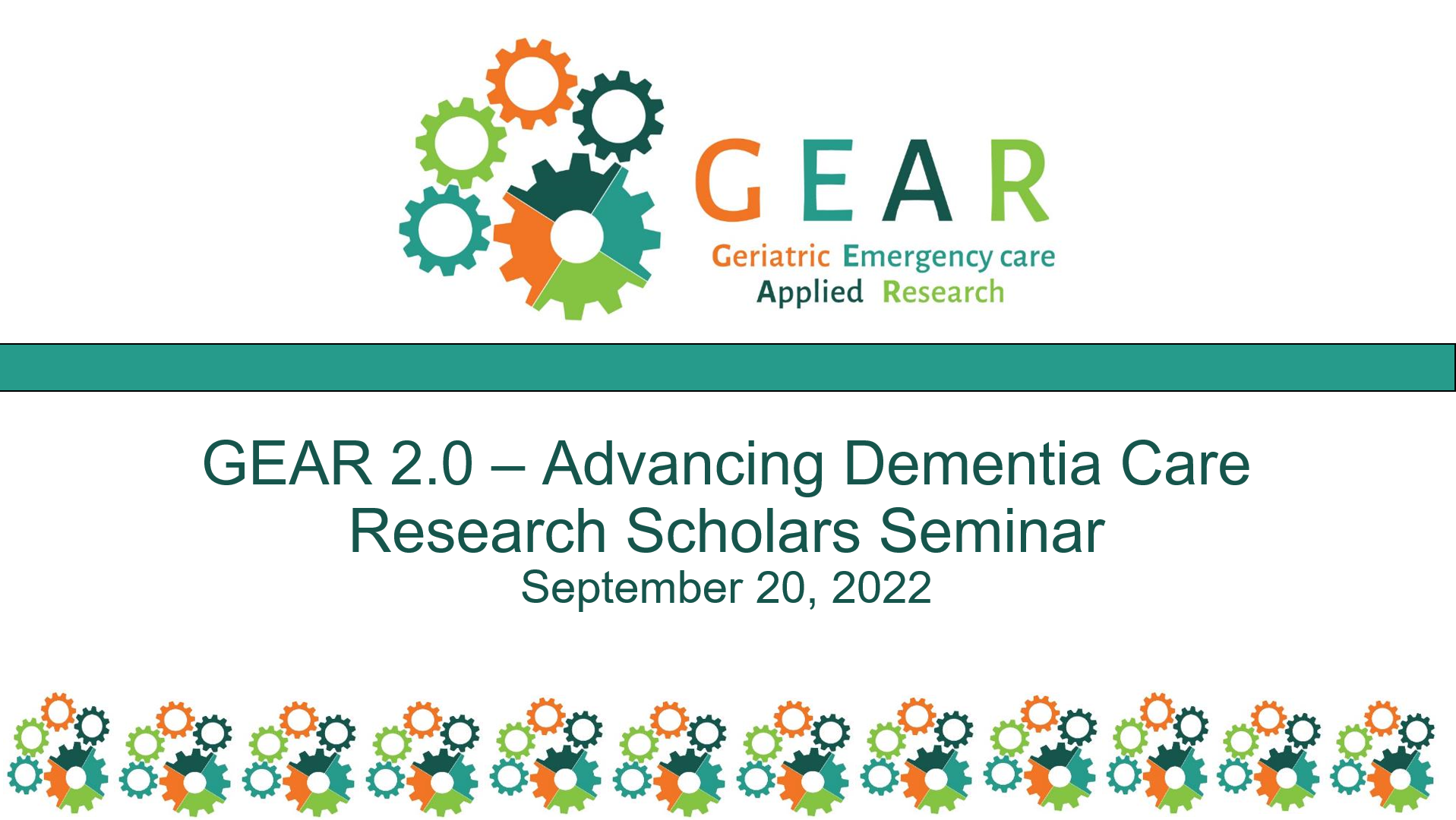
56:05

41:35
58:14
57:48
55:22

23:31

59:14

33:55
Dyads and Proxies in Dementia Care Research
This presentation focuses on the use of dyads and proxies in dementia care research. Dr. Joan Monin is an associate professor at Yale University’s School of Public Health. She is an expert in understanding how caregivers and care recipients support one another in the context of early stage dementia. She discusses dyads and proxies and research among dyads of PLWD and care partners.
This video discusses how the pilot study has helped with career trajectory and next steps.
Data Core Trainings
Data Core Playlist

58:28

58:14
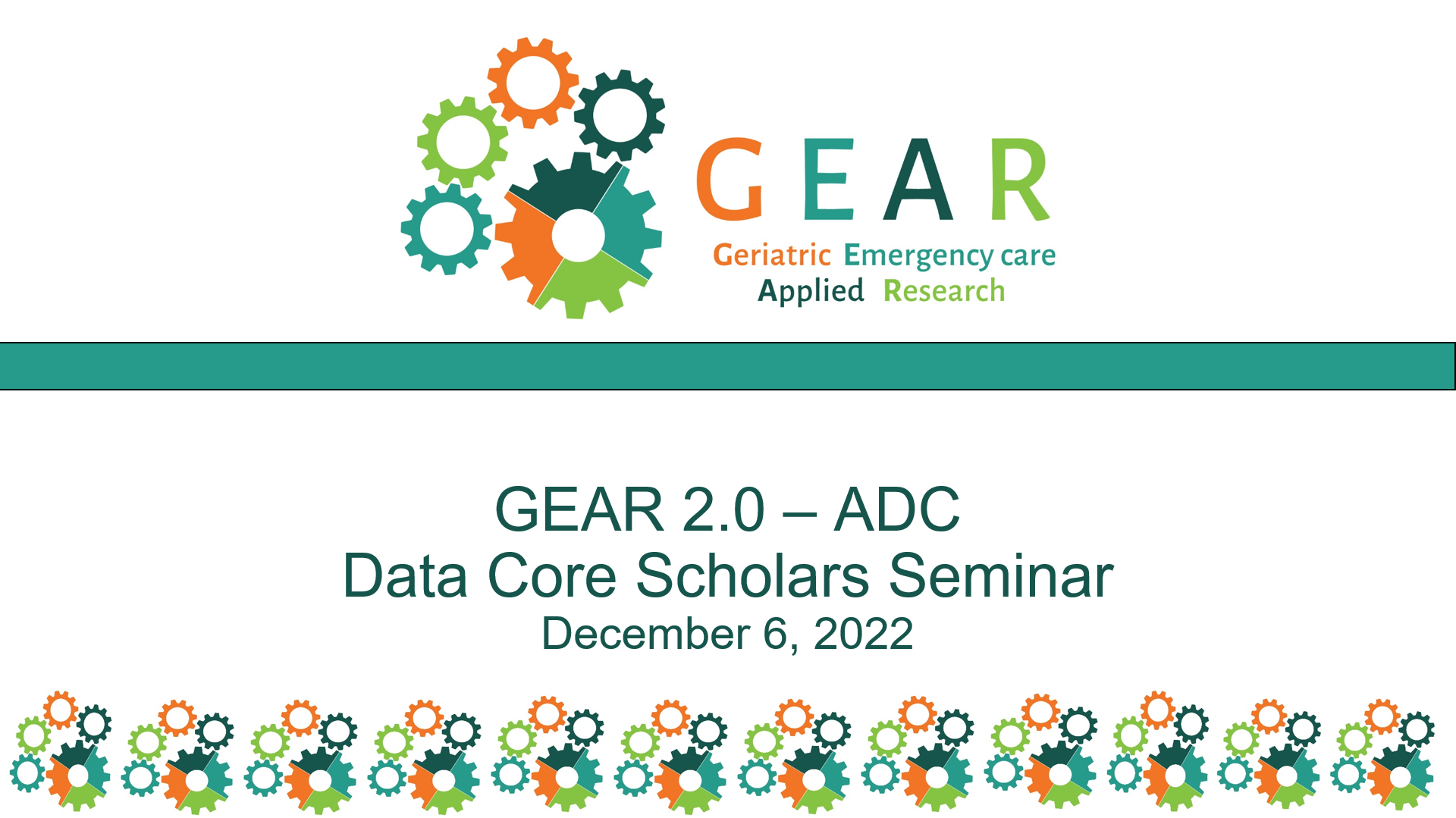
40:23
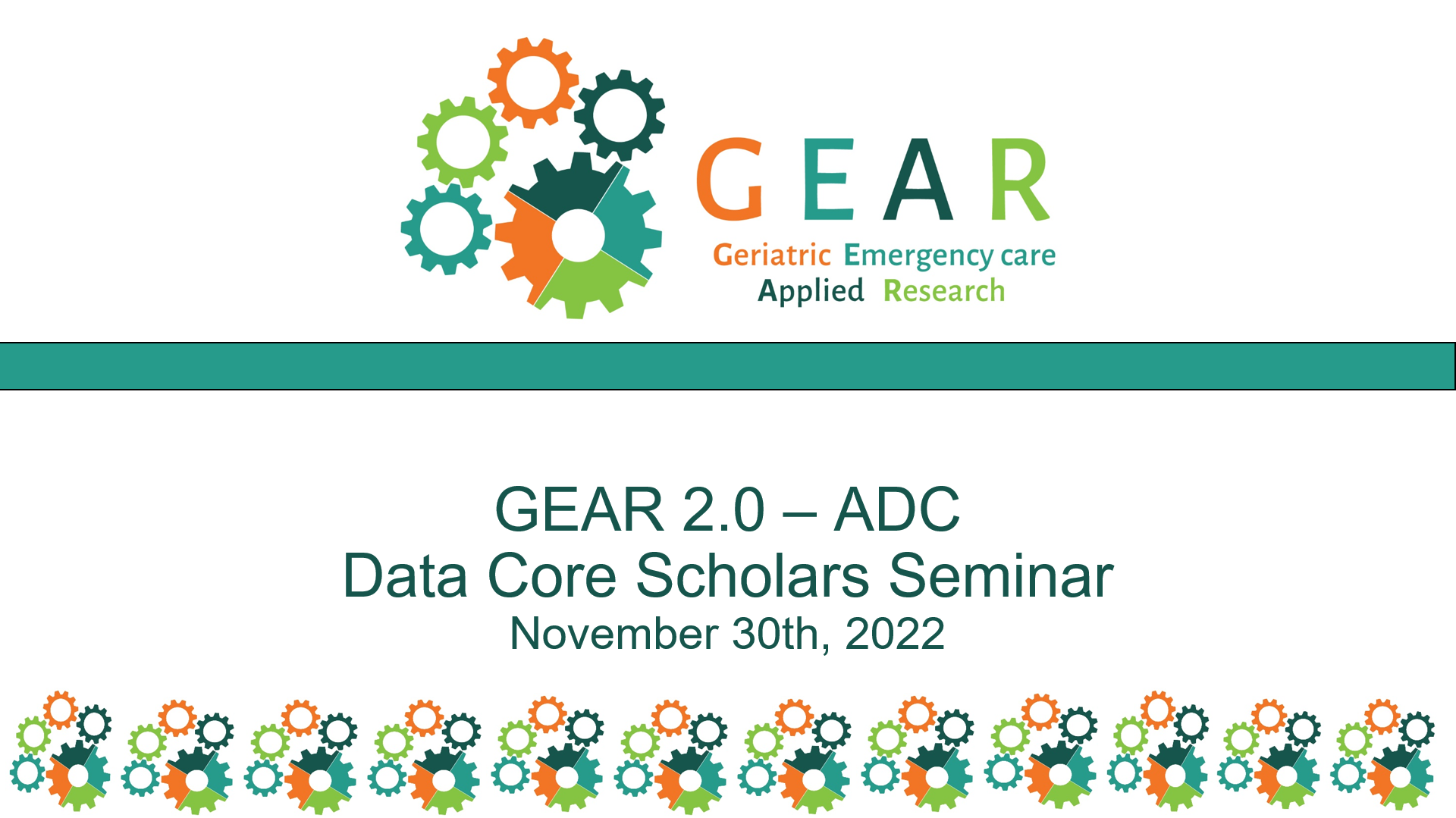
1:01:13
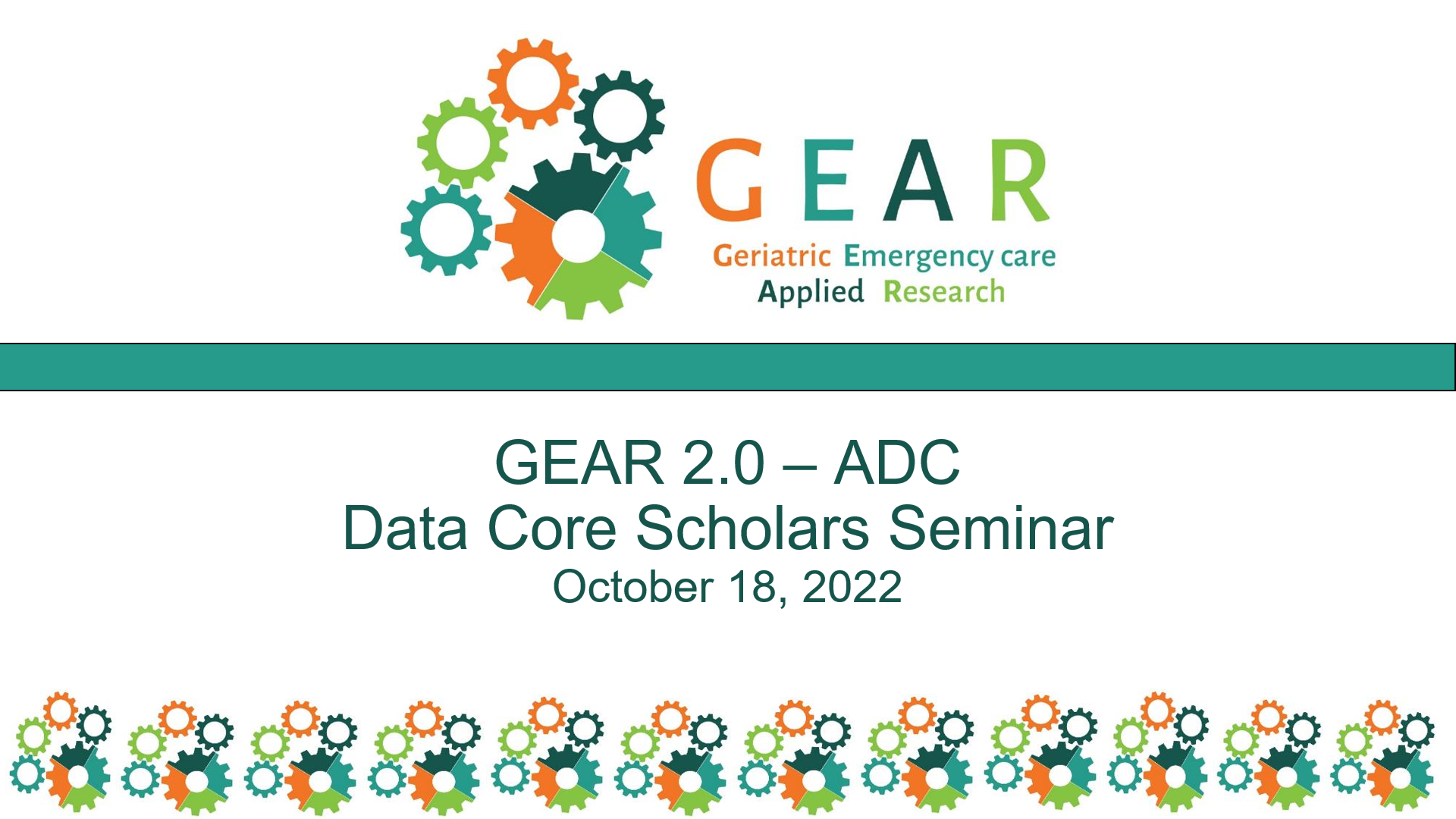
54:55
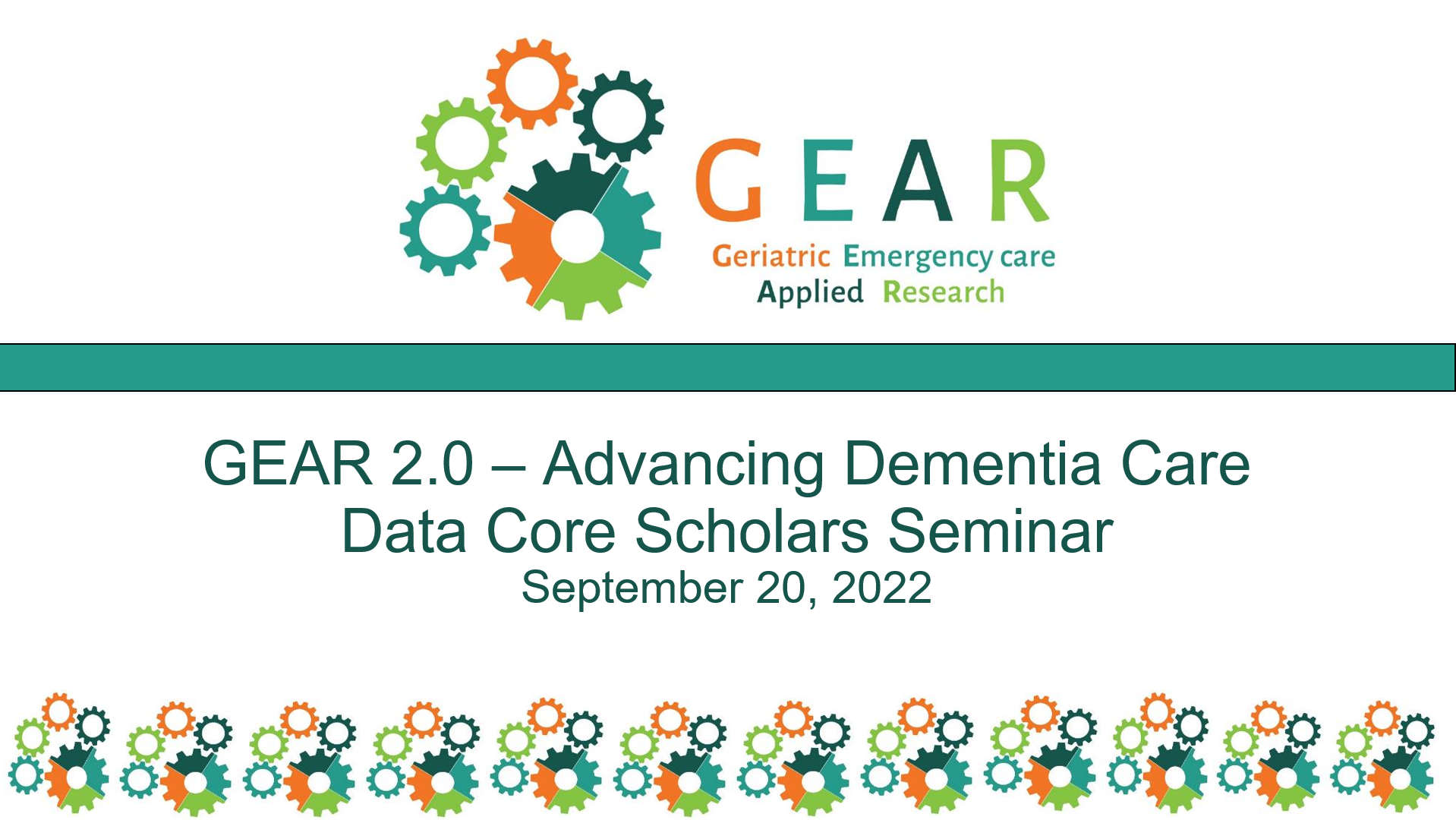
57:57
53:47
Rush ADC Data Sharing and Medicare Linkages
This presentation gives and overview of the data available through the Rush ADC. It also discussed the Medicare claims linkage availability through MedRIC. Dr. Bryan James is an epidemiologist with the Rush Alzheimer’s Disease Center and an associate professor in the Department of Internal Medicine, Section of Epidemiology Research. His research focuses on identifying risk factors for Alzheimer’s disease, dementia, cognitive decline and disability at the population level. In particular, he is interested in social and lifestyle factors that can protect against the clinical manifestation of disease pathology in the aging brain.
Dyads and Proxies in Dementia Care Research
This presentation focuses on the use of dyads and proxies in dementia care research. Dr. Joan Monin is an associate professor at Yale University’s School of Public Health. She is an expert in understanding how caregivers and care recipients support one another in the context of early stage dementia. She discusses dyads and proxies and research among dyads of PLWD and care partners.
REDCap Overview
This presentation focuses on the use of REDCap and how to build and use databases in particular for aging studies. Katy Araujo, MPH has worked in the field of clinical research data management and informatics for 25 years, currently Co-leader of the Operations Core for the Program on Aging and Claude D. Pepper Older Americans Independence Center. In addition, she serves on the REDCap@yale team; REDCap is a web-based data collection system supported by the national CTSA program and overseen by Yale OAIC. Data Management and Informatics systems for STRIDE (Stride Study (stride-study.org)), D-CARE (D-CARE Study (dcare-study.org), and GEARSS (GEAR Network – Geriatric Emergency care Applied Research Standardization Study).
Cognitive Impairment Assessment Tools
This presentation focuses on how to measure and assess cognitive impairment or dementia in older adults. Lindsay Clark, PhD is a faculty member in the Division of Geriatrics and Gerontology in the Department of Medicine at the University of Wisconsin. As a neuropsychologist specializing in geriatrics, Dr. Clark provides diagnostic assessments and treatment planning as part of the UW Sauk Prairie Outreach clinic and VA Geriatric Research Education and Clinical Center (GRECC) Connect Teledementia and Cognitive Care Clinics.
UPDATE: The WHI RDW is no longer operational.
West Health Institute’s Research Data Warehouse
This presentation focuses on the Research Data Warehouse platform at the West Health Institute. Juhi Israni, MS is a data scientist at West Health.
Data Resource Overview
This presentation intends to give an overview of available data resources with a focus on dementia and aging populations.
This is an overview of the Research Data Warehouse and the GEARSS Data.
Dissemination & Implementation Core Trainings
Meeting PowerPoints & Notes
D&I Playlist
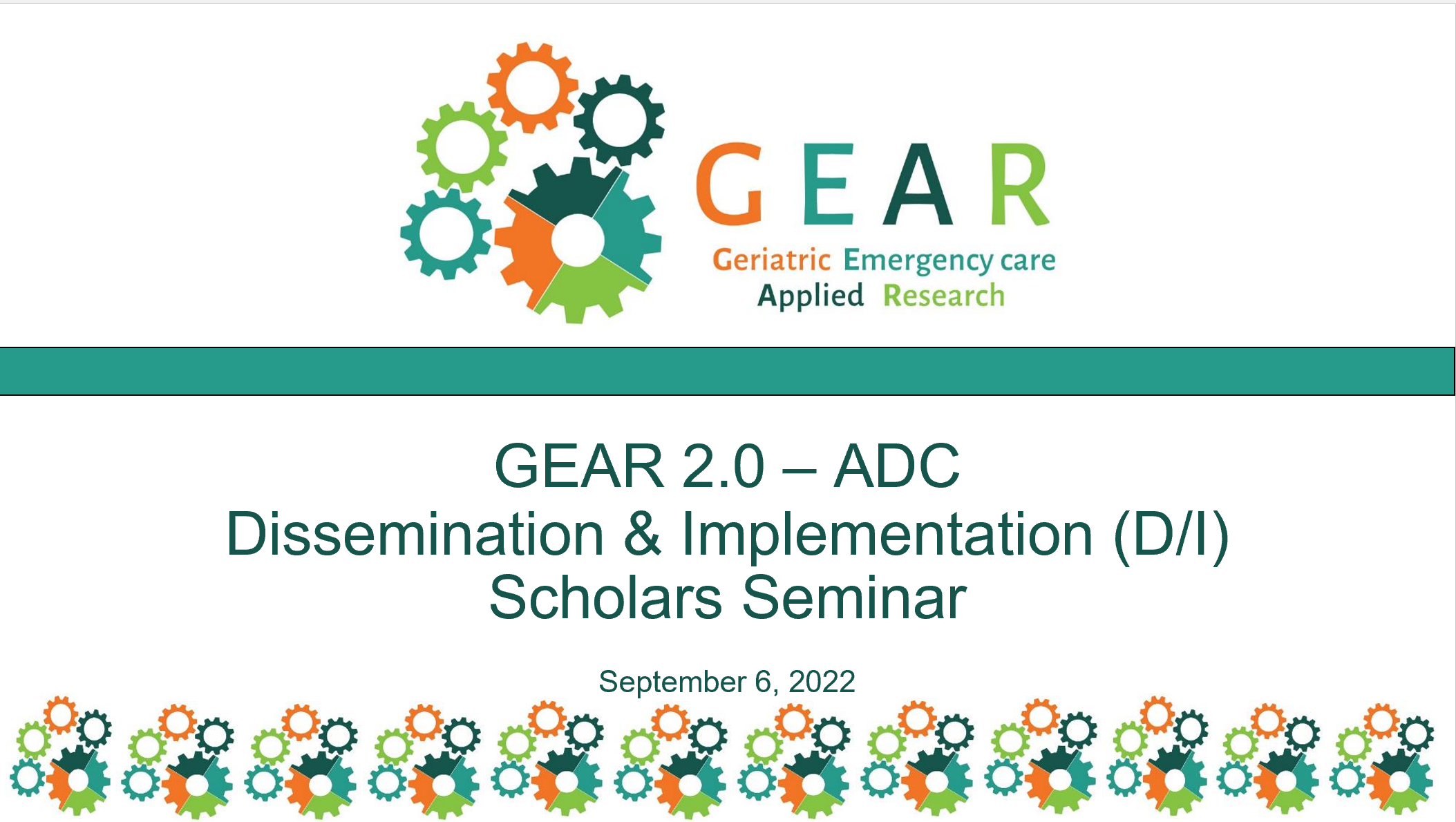
28:08
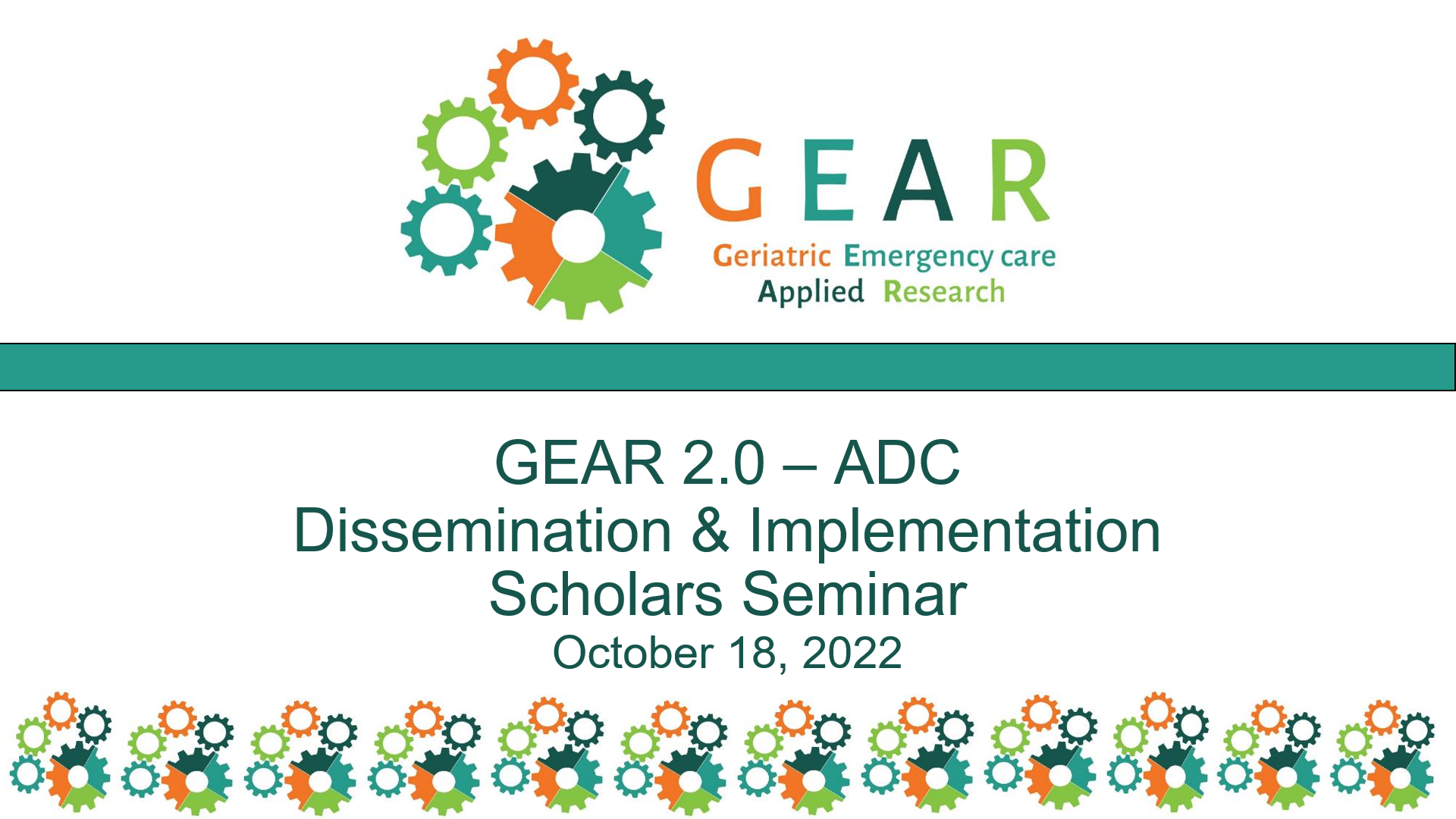
37:13
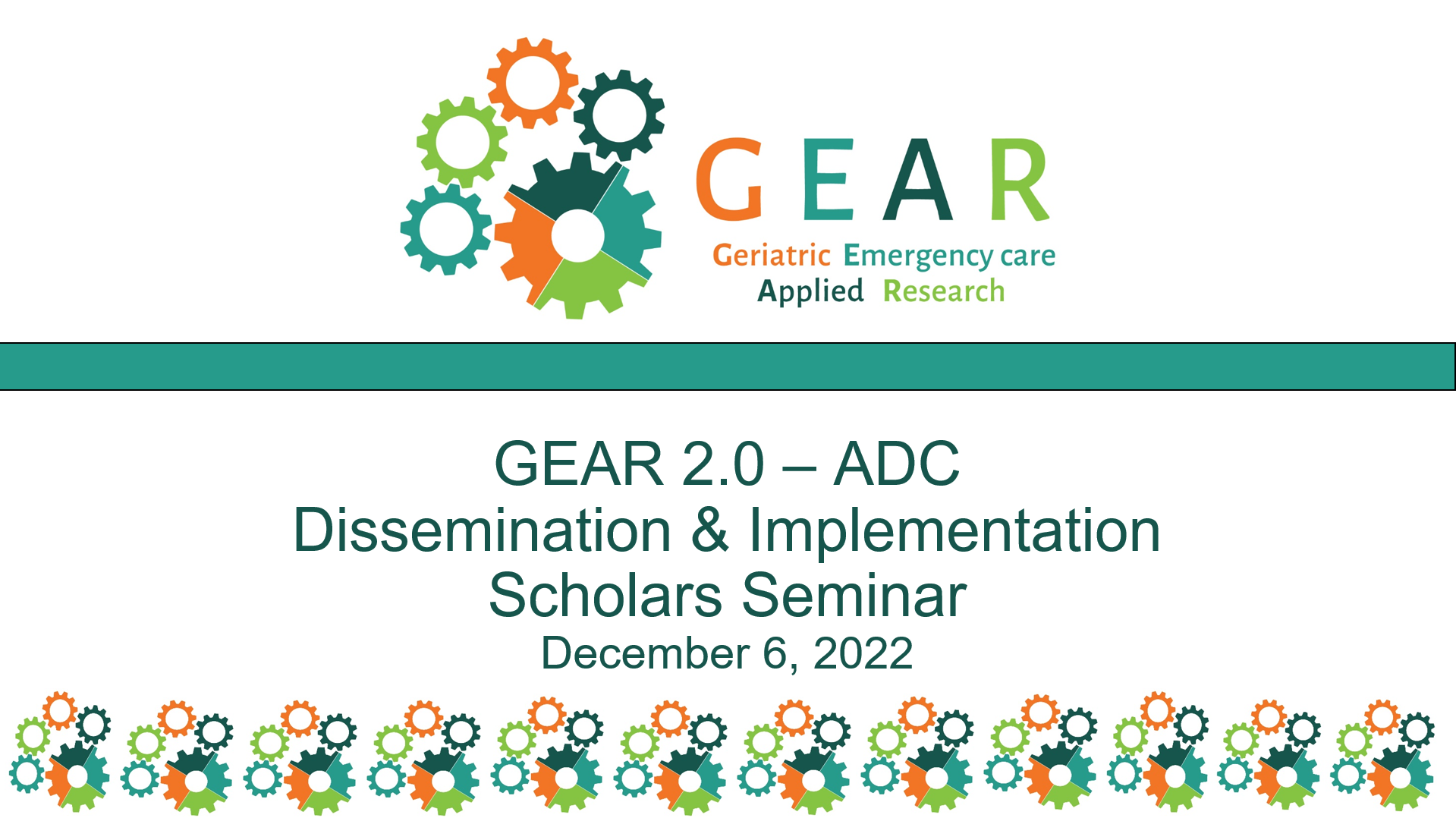
41:01



58:28






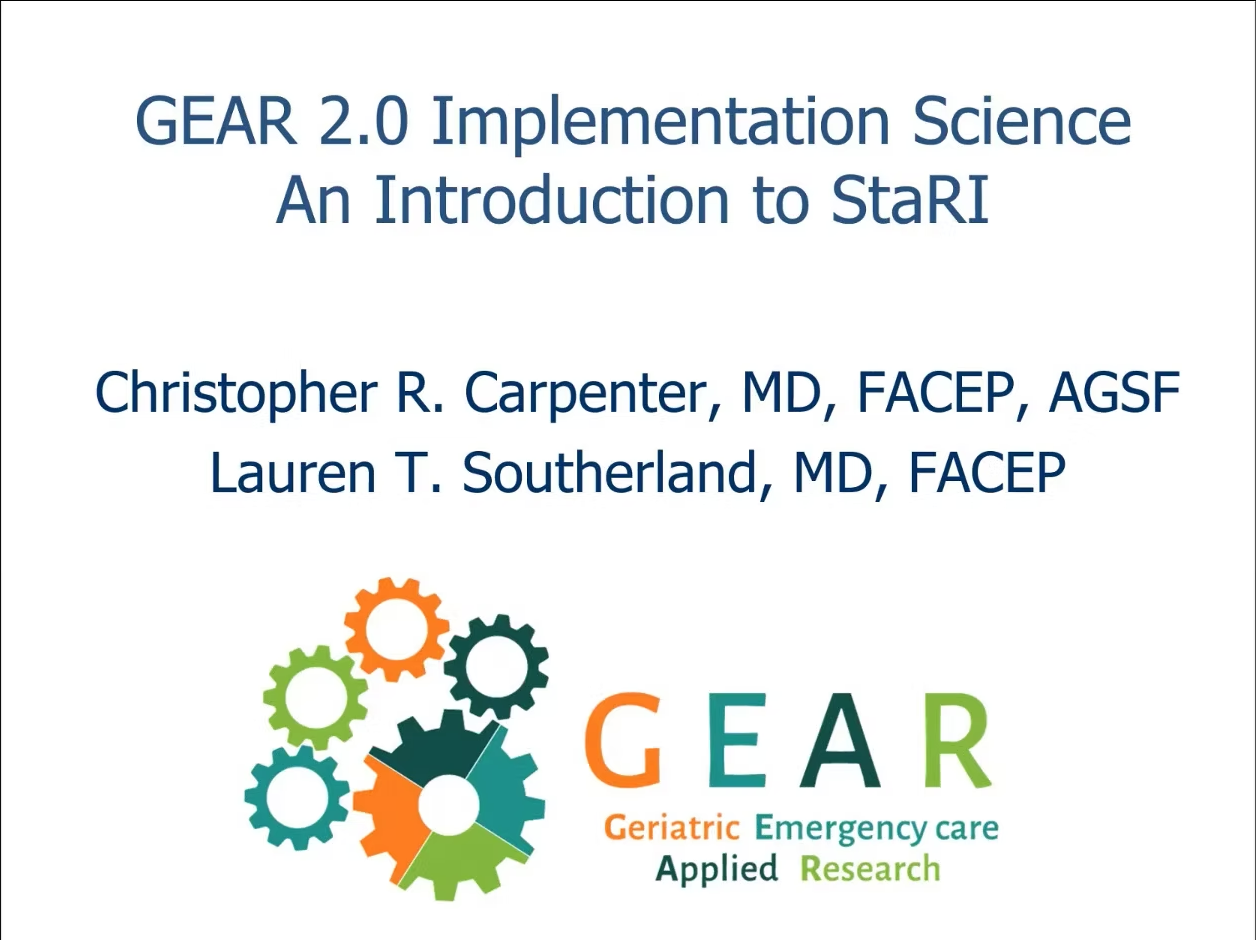
13:54
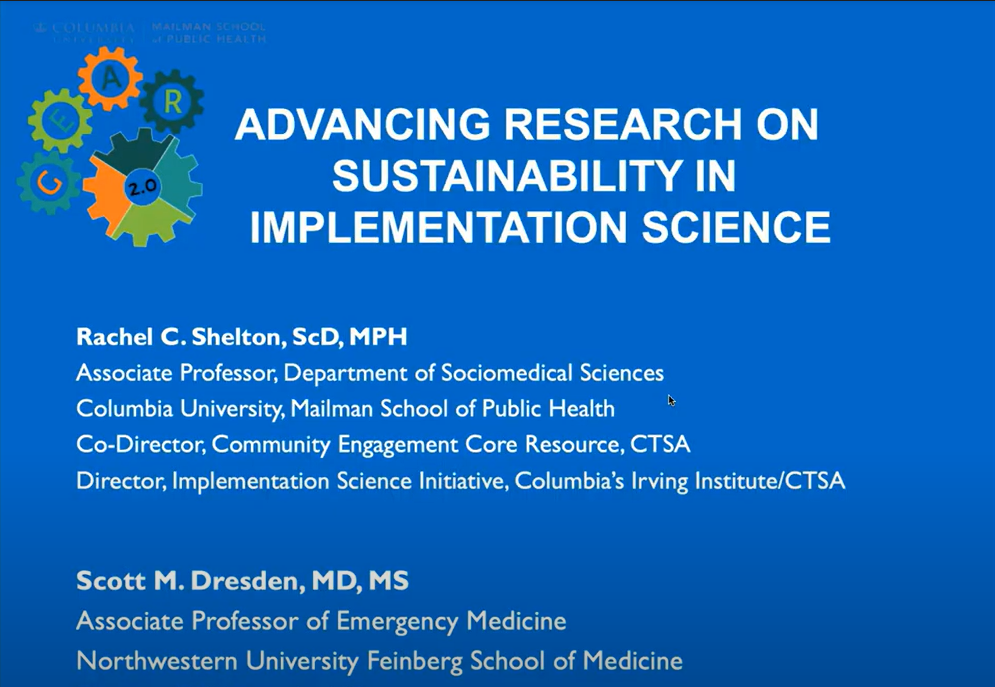
24:16
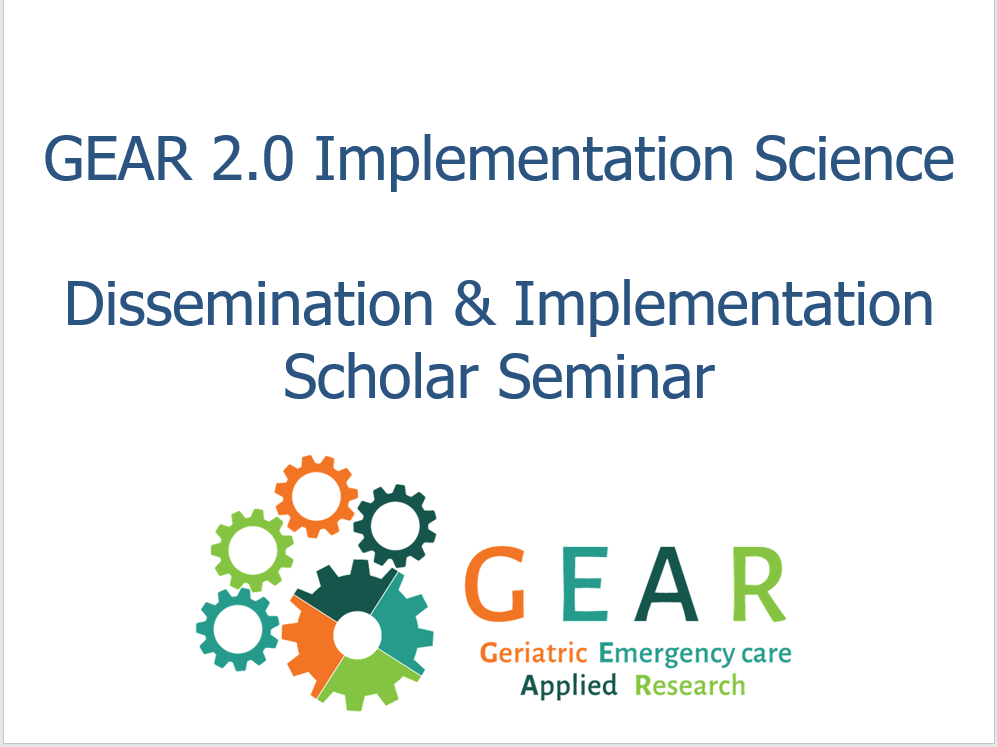










- Example Consent Procedure – Brain Health Community Registry Consent Procedures
- Example Capacity to Consent Assessment – Registry Capacity to Consent Assessment
- Resnik et al. – link to article on the evaluation to sign consent measure
- November Scholar Seminars Slides
- Sustainability Rating Tool – assessment tool to better understand the sustainability of your study design
- Literature
- Isolation of Health Services Research from Practice and Policy: The Example of Chronic Heart Failure Management by Seow et al., 2006
- A framework and a measurement instrument for sustainability of work practices in long-term care by Slaghuis et al., 2011
- The Sustainability of Evidence-Based Interventions and Practices in Public Health and Health Care by Shelton, Cooper, & Stirman, 2018
- Evidence-based intervention sustainability strategies: a systematic review by Hailemariam et al., 2019
- Do the Expert Recommendations for Implementing Change (ERIC) strategies adequately address sustainment? by Nathan et al., 2022
